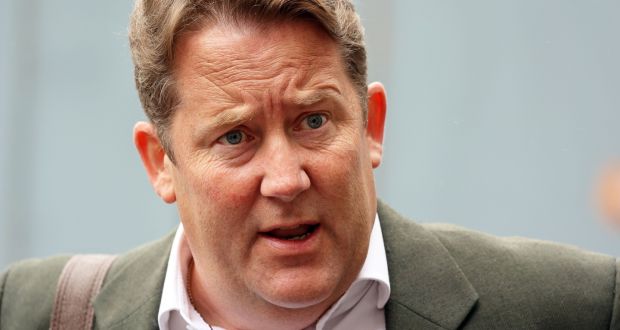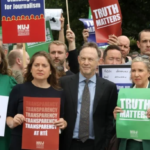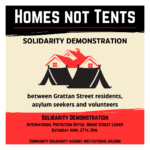No Housing for All – Just Profit for the Few
Darragh O’Brien published his housing plan, Housing for All, on 2 September, almost 15 months after the formation of the Government.
The plan is for 300,000 new homes by 2030, an average of 33,000 each year. That breaks-down is as follows:
- 90,000 social housing homes
- 36,000 affordable
- 18,000 cost rental
- 156,000 private market
But it is estimated that we need up to 40,000 new homes per year just to keep up with population growth and to replace old housing stock. This level of new home construction would be needed even if we didn’t have a housing crisis. And the plan for extra homes by 2030 is likely to have little effect on rents or on finding a decent and affordable place to live in Ireland.
The budget for the Land Development Agency’s is being increased by €1 billion to €3.5 billion, in preparation for what will inevitably be a looting of public land to create opportunities for developers and builders to profit from ordinary people desperate for a secure home.
Just over half the new homes in the plan are supposed to come from the private market. But developers and builders will only build the houses they think they can profit from. If they are built, they will be unaffordable for most people, or they won’t be built at all.
The plan is for about 10,000 new-build social homes each year. But even these homes will come mainly from private developers selling 20% of new developments to local authorities. Once again, the number of new homes we get will be left to the market and those seeking profit.
Evictions from the private sector are the biggest source of homelessness, but there is nothing in the plan to prevent evictions. Minister O’Brien has the neck to claim it will implement a rent freeze, but the wording of his document is “For renters – a rent value freeze to 2024 by linking any increases in Rent Pressure Zones to inflation”. So it’s not a rent freeze, as rents will continue to increase with inflation, on top of rents that already cost many people, 30%, 40% or 50% of their income.
Housing for All includes no measures to curb vulture funds and corporate landlords.
The plan includes 2,000 new build cost rental homes per year. But there are over 350,00 households in the private rental sector. So by 2030, just 5% of current renters will have the opportunity to have a cost rental home. And there are another 450,000 young people living at home and unable to afford to rent their own place.
An important aspect of the cost rental plan is that the rent is linked to the costs of building the home. The plan is for rent to be set about 25% below market rents. But this still means that the cost of a home is determined by the marketplace when it should be set as a % of the renters’ income.
In addition, the 36,000 planned new ‘affordable’ homes will not be affordable for most people, with prices expected to be as high as €450,000 in parts of Dublin.
Housing for All commits to retrofit only 36,500 local authority homes by 2030, from a total local authority stock of about 130,000 homes, while retrofitting of private rental properties appears to be deferred until about 2025. These are totally inadequate responses to the climate emergency we face.
Finally, a referendum on housing is mentioned in the plan, but there is no commitment that the Government will support putting to right to housing in the constitution.
The PBP View.
Housing for All is reinforcing the government’s policy of allowing housing to be dominated by the market, with supply to be determined by the profit requirements of developers and builders. Corporate landlords will have even greater unimpeded opportunity to dominate housing and extract rents that leave many people with little left over to live on.
People Before Profit would establish a public home building agency to give certainty in the delivery of large volumes of social and genuinely affordable homes, to drive up energy and other standards, and to give building workers a real prospect of secure, well-paid employment.












